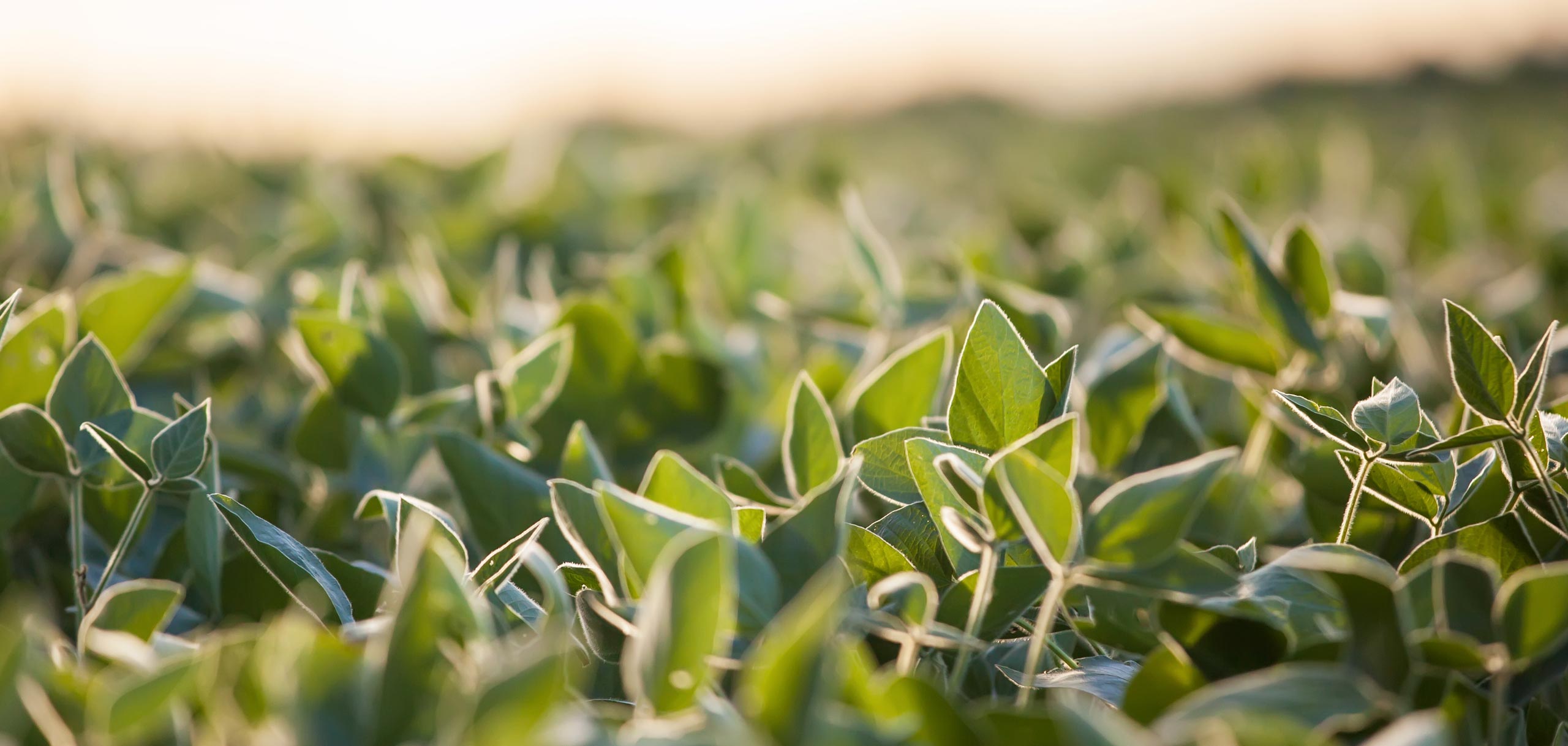USSEC Sponsors Korean Soybean Meal Trade Team’s Visit to Indiana Soybean Farm, Processing Facility
- Category:
- General News

A Korean soybean meal trade team, comprised of about 15 soybean buyers and other officials, visited the Midwest after attending the U.S. Soy Global Trade Exchange. The team toured Wyss Farm Enterprises (WFE) near Fort Wayne and Bunge North America’s facility in Decatur on September 18. Members of the USSEC Korean Soy Food Bean Trade Team, lead by USSEC- Korea Human Utilization Marketing Manager, Jisook Chung, at DeLong’s with Austin DeLong visiting their Headquarters, an IP storage facility and visit to IP, food grade soybean fields.
The soybeans the team saw in Southern Wisconsin and Northern Illinois were excellent -- clean stands with heavy numbers of pods per plant. Pod fill is very good to excellent with many plants having 50 or more pods per plant.
USSEC Country Director – Korea Say Young Jo said, “Our group is seeing that U.S. farmers are very much trying to meet demand (for soybeans) in terms of quantity and in terms of quality. By conveying this to them, we hope this will lead to their preferences for U.S. soybeans and soybean products.” He noted, “We’re promoting the value (of soybeans) to end users and promoting the soybean products produced from soybeans.”
Marypat Corbett, USSEC Soy Food Program Marketing Manager, who accompanied the Korean Food Bean Team said, “At the recent Global U.S. Soy Trade Exchange conference held in Milwaukee, Wisconsin, there were a number of food grade soybean growers and exporters from various states mentioning seeing unusual sight while scouting some fields -- pods containing four beans. Generally, soybean growers from across the nearly 3500 plus kilometers of the soybean growing region in the U.S., feel we have good quality in the food grade soybean crop right now.”
The visit allowed Indiana soybean farmer and Indiana Soybean Alliance (ISA) director Don Wyss to renew acquaintances that he made during a U.S. soybean meal workshop to Yongpyong, Korea last April. He also attended a short course in swine production in May in Jinju City, South Korea.
“The trade team wanted to make it a point to come by and see our farm,” said Mr. Wyss, who is a partner in WFE and its chief marketing officer. “We were (in Korea) to carry the message about U.S. agriculture, and to help them learn more about U.S. soybeans and U.S. soybean products.”
The visitors had the opportunity to tour the farm’s soybean fields and hear a presentation about the farm. The delegation also talked with area farmers and check out combines and other pieces of farm equipment.
“Asian buyers value a relationship, faces and friendship and putting faces to a name, and South Korea is no different in that regard,” Mr. Wyss explained. “They prefer U.S. soybeans and U.S. soybean meal and they’re willing to pay a premium for both. They trust us, they trust our products.”
Because South Korea has its own soybean processing facilities, the country is able to buy whole soybeans which they can process themselves, Mr. Wyss continued. The important thing to remember, he said, is that it doesn’t matter if soybeans are whole or processed when they leave this country, as long as buyers are purchasing U.S. soy.
“Any visit like this is always a good chance for openness and dialogue,” he stated. “In the spring when I was in South Korea, they said they were pleased with the quality of U.S. beans. That’s always one of the Asian buyer’s key pieces, and we want to know what else we can be doing.”
In 2013, South Korea imported 20 million bushels of U.S. soybeans, which represented 54 percent of its total whole soybean imports. The nation also imported 357 million pounds of U.S. soybean meal, about 11 percent of its total soybean meal imports.